Gargano In the heart of Puglia
Baia del Monaco VillageThe Gargano is a land characterized by an environmental diversity that lends itself to numerous activities.
There are many itineraries to follow, excursions to organize and sports to practice, which offer lots of fun and a pinch of adventure.
From the coast you can easily reach the hinterland and from a panorama made up of cliffs, sea caves and fascinating seabeds, you pass to the green of the Umbra Forest, to the vegetation that grows luxuriantly away from the noise and stress of city life.
Exploring the Gargano is an unforgettable experience, especially for the opportunity to observe uncontaminated vegetation and a very varied fauna.
As for the flora, various types of vegetation can be found in the area: forests, Mediterranean scrub, karst plateaus, sea cliffs, valleys, coastal lagoons and steppe plains.
There are over 2,000 botanical species, which grow undisturbed thanks to the favorable climatic conditions and include beech woods, pine forests of Aleppo pines, Turkey oaks, holm oaks, elms, maples, oaks. There are also olive groves, almond groves and vineyards, especially in the more steppe area. Furthermore, in the Gargano many varieties of wild orchids grow spontaneously, of which over 80 species have been identified, which make the whole territory even more colorful and fascinating.
From the point of view of fauna, the diversity of habitats implies the presence of many animal species. In Gargano nest about 170 species of birds, including woodpeckers, raptors, corvids and other waterfowl. Among the mammals it is not strange to meet the Italic roe deer, the red deer, wild boars, badgers, fallow deer, hares, hedgehogs, foxes and sometimes even wolves.
In short, nature lovers will have the opportunity to observe and come into contact with such a great biodiversity that they will be surprised and fascinated by every corner of the Gargano promontory.
Info: www.exploragargano.it
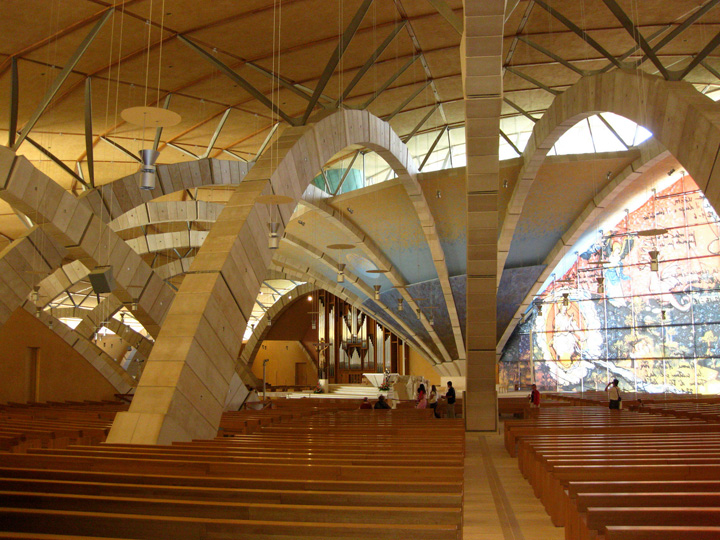
San Giovanni Rotondo
San Giovanni Rotondo is world famous because it is the place where the remains of San Pio da Pietrelcina, a Capuchin friar, who lived for about 50 years in the Gargano town, are preserved.
The historic center of San Giovanni is a separate part of the city, for those accustomed to frequent it for the sacred places linked to the cult of Padre Pio. The ancient part of the city develops in a network of narrow ties and suggestive corners that reproduce images of an ancient past. Its heritage of churches is important, including what was originally the pagan temple dedicated to the God Janus, subsequently consecrated by pilgrims who passed along the Via Sacra Longobardorum, to San Giovanni Battista. The current name of the town derived from the shape behind this church, consisting of a round baptistery.
The environmental setting in which San Giovanni Rotondo is set offers the visitor who loves nature suggestive scenarios, unique in the promontory.
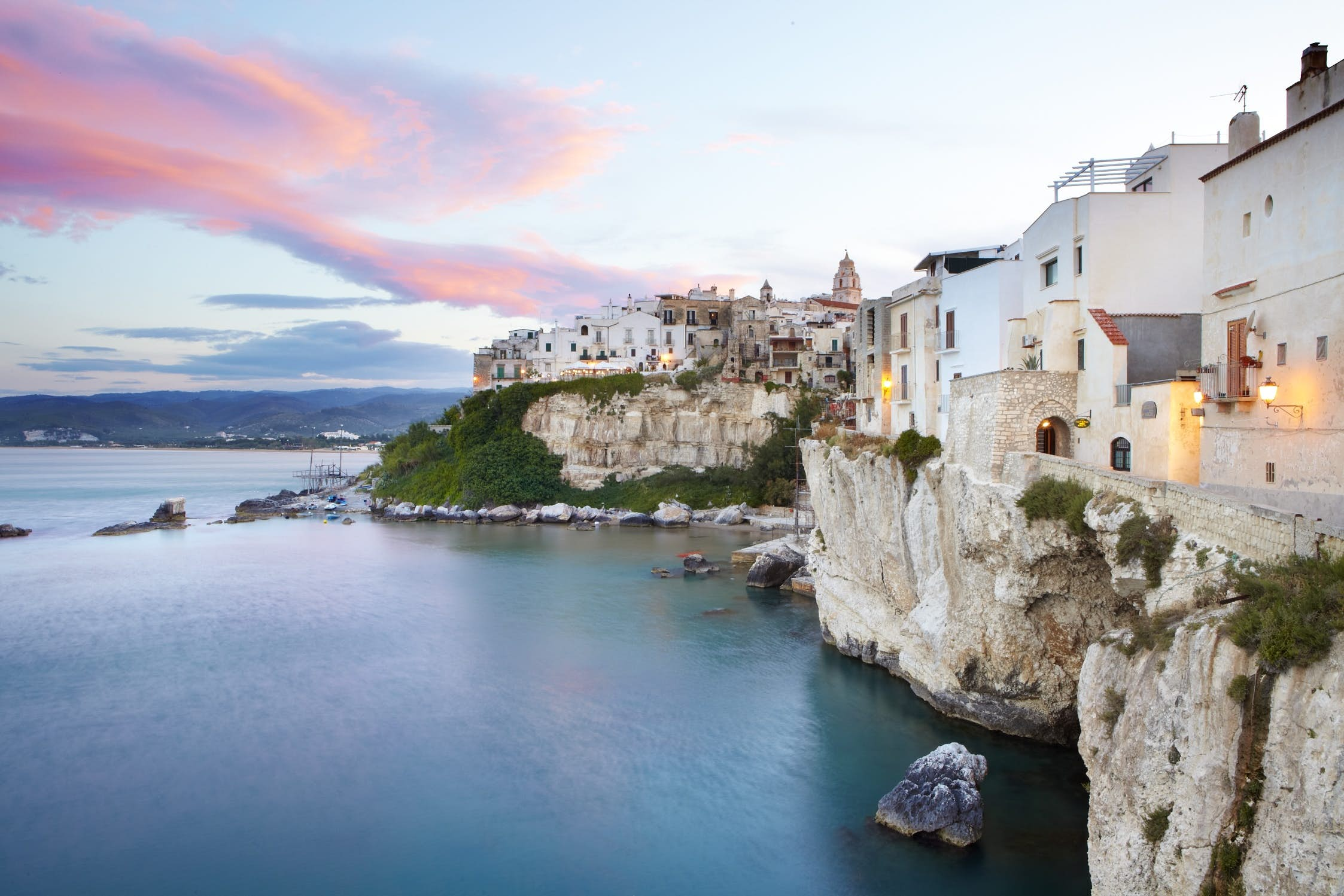
Vieste
Vieste is the city located to the east of the entire Gargano Promontory, in an isolated position with respect to the other Gargano centers, a reason that in the past gave it the name "La Sperduta".
With its top quality hotels, its immense sandy beaches, numerous campsites and hotels, Vieste represents the "pearl of the Gargano" immersed in the clear blue waters towards which it stretches and which has earned it several times the award of the Blue Flag. from the Foundation for Environmental Education.
Destination for thousands of tourists from all over the world, it offers its visitors scenarios of incomparable naturalistic and historical beauty: from the coasts that fall sheer into the sea to the nineteenth-century part consisting of its famous historic center.
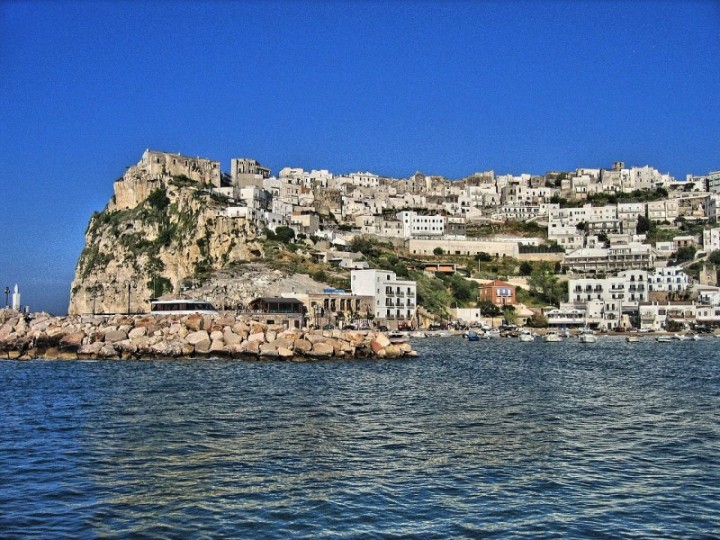
Peschici
The city of Peschici stands on a cliff in a splendid position overlooking the sea. A popular destination for tourists on holiday on the Gargano, it still retains the influence of its Moorish origin, a reminder of Arab dominations and raids, with caves carved into the rock and ancient white houses with domed roofs.
The historic center is full of very suggestive views, with its artisan shops and numerous places where it is possible to taste the typical dishes of the Apulian tradition. Walking through the narrow alleys carved into the cliff or climbing the small and winding stairs that characterize it, you can breathe a unique atmosphere: the scent of maritime pine mixed with the brackish air is confused with the smell of rosemary and caper that arises spontaneously here.
Among the many beaches that surround it, one of the most beautiful is the Bay of Manacora, located on the extreme tip of the Gargano coast with a splendid beach of fine sand framed by rocks close to the Gargano National Park.
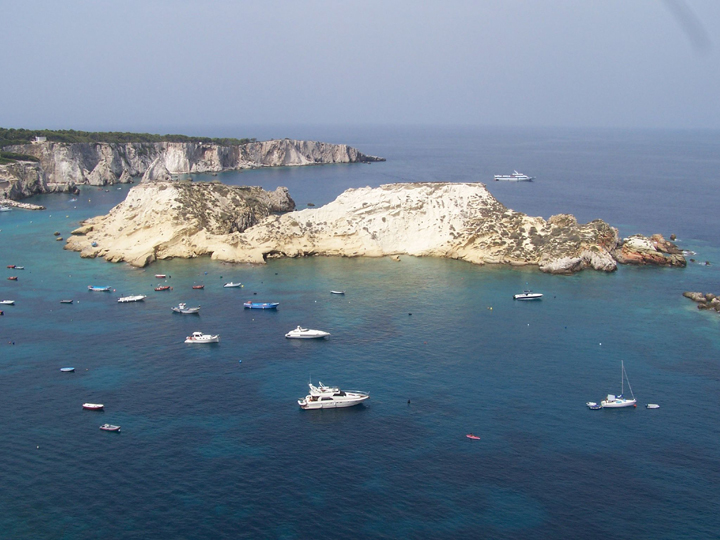
Tremiti Islands
Those who love the sea cannot fail to go to the Tremiti Islands at least once in their life. The limit position that distinguishes it enhances its charm. Charm deriving from the deep blue waters of the Adriatic that surrounds them. The beauty and the uncontaminated character of the landscapes, combined with the clarity of the waters, have allowed this archipelago to conquer the denomination of "Pearl of the Adriatic".
The Tremiti Islands are about 10 miles from the Gargano coast and are characterized by the diversification of contrasting and variegated landscapes, a variety that is also rediscovered on the seabed of the underwater landscape. The transparency of the sea enhances and amplifies the variety of colors. Seabed and underwater walls alternate just waiting to be explored.
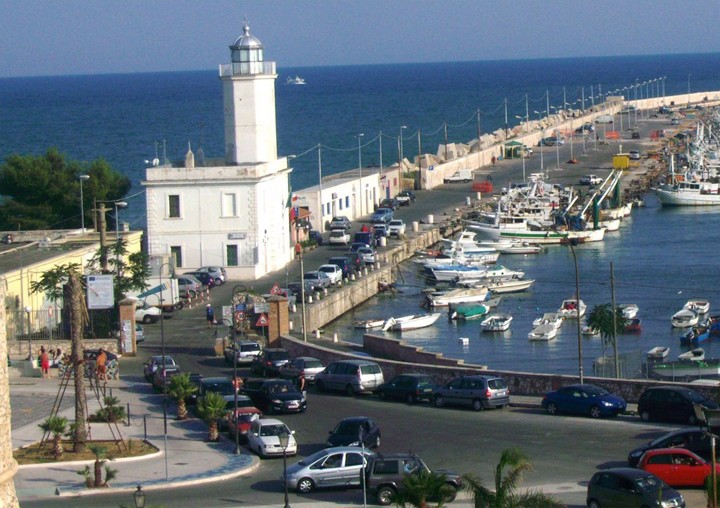
Manfredonia
Manfredonia is located on the edge of the Tavoliere, on the largest gulf of the central-southern Adriatic. It is the port and maritime city par excellence in the province of Foggia.
When we talk about Manfredonia we cannot help but remember its gulf, its port, which is becoming more and more interesting every day from a tourist point of view, and is the vital element of the local economy. In a succession of free spaces and modern bathing facilities, the arm of the sea, which extends for over 20 kilometers south of Manfredonia, always offers tourists various possibilities. There are also tourist villages and campsites for those who love to live even more in contact with nature. The city retains the charm that King Manfredi gave it in ancient times. In the streets, in the white alleys of the historic center, you can breathe a frank, genuine, typically Apulian air.
 EN
EN IT
IT

